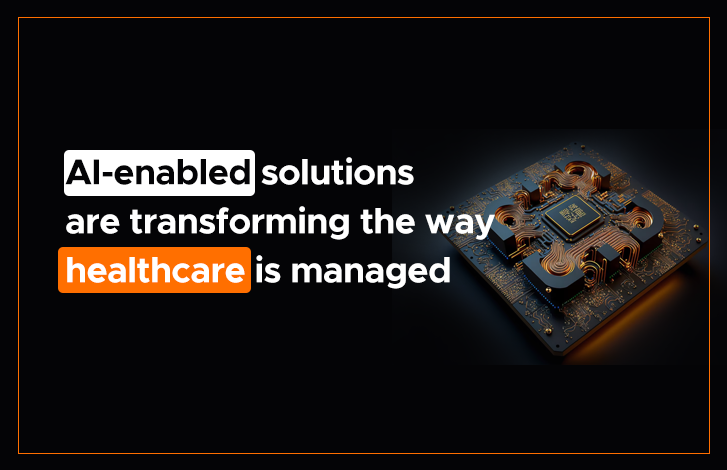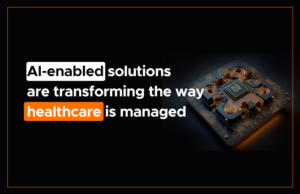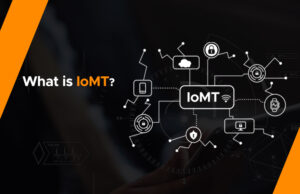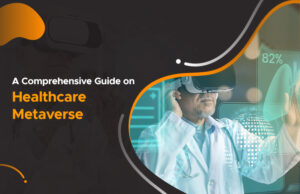The healthcare industry has been one of our era’s greatest success stories. Rapid medical science advancements have led to an increase in life expectancy worldwide. Healthcare systems still have to deal with increased patient demand, rising costs, and overworked staff as people live longer. In this article, we will discuss how using artificial intelligence (AI) enabled solutions can transform the way healthcare is managed.
The Rising Demand of Healthcare
Population aging, shifting patient expectations, a change in lifestyle preferences, and the never-ending innovation cycle are just a few of the inescapable drivers driving demand. The effects of an aging population stand out among these.
One-fourth of the people in North America and Europe will be over 65 by 2050, meaning the healthcare systems will have to deal with more patients with complicated demands. It is expensive to manage these patients, and procedures must change from a philosophy of episodic care to a considerably more proactive and centered on long-term care management.
The idea behind artificial intelligence, or AI, is that machines may be trained to imitate human decision-making and learning processes. Oncology, mammography, and neurology are just a few medical specialties that rely on imaging data, and they have already started to gain from applying AI techniques.
There is little doubt that artificial intelligence (AI) technologies can completely transform the health industry’s operations, increasing productivity and enhancing patient outcomes across hospital care, clinical research, medication development, and insurance. In fact, according to Business Insider Intelligence, between 2017 and 2023, spending on AI in healthcare is expected to increase by an annualized 48%.
Uses Of AI-enabled Solutions In Healthcare
Around 400,000 hospitalized patients experience avoidable damage each year, and 100,000 pass afterward. Given this, one of the most intriguing applications of AI in healthcare is its potential to enhance the diagnosis process.
Large caseloads and incomplete medical histories can result in fatal human errors. Because AI is immune to these factors, it can quickly identify and forecast disease more than most medical practitioners.
AI is still in its early stages, so its long-term impact is unknown. Our healthcare delivery, approach to innovation, and the way we think about health can all be impacted by the future applications of AI-enabled solutions. Population-level data from wearables and implants can transform our understanding of human biology and how medicine works, envisioning a future where everyone receives real-time, personalized care.
Geographically, the dynamics of AI growth are changing. The United States continues to top the list of companies with the most VC funding in the healthcare AI space and the most completed AI-related healthcare research and trials. However, the fastest growth is in Asia, especially China, where leading domestic conglomerates and technology companies to offer consumer-focused AI-enabled solutions in the healthcare sector.
Promoting Drug Discovery With AI
The drug development industry has been bogged down by skyrocketing development costs and thousands of hours-consuming researches. It is estimated that it costs an average of $1.3 billion to put each drug into clinical trials, and only 10% of these drugs reach the market.
With technological breakthroughs, biopharmaceutical companies rapidly realize the efficiency, accuracy, and knowledge that AI can provide.

By enabling quick target identification and characterization, innovative de novo design, effective novel lead discovery, or drug repurposing (a new use for an existing drug), as well as precise predictions of pharmaceutically important properties, AI/ML-based technology can speed up drug discovery at various stages.
The ultimate goal is to eliminate current gaps in disease knowledge and facilitate the quick translation of more complex predictions into clinical practice.
Challenges Promoting the Adoption of AI In the Healthcare
The advancements in the use of AI-enabled solutions in healthcare have been significant. It will be more challenging to transition to a world where AI can significantly improve care on a global scale.
AI has limitations and is not a cure-all for healthcare systems. Following are some themes that all participants in the healthcare ecosystem will need to address, according to the analyses in this report and the most recent opinions from stakeholders and frontline staff:
Understand AI-enabled Solutions and Its Implementation
To produce better results, AI models become more complex. Because of its complexity, AI operates in a “black box,” making it more challenging to comprehend how the model functions. To respond appropriately, healthcare professionals frequently need to understand how and why AI generates particular results. The need for reasoning for healthcare organizations and patients raises dependability issues.
Explainable AI techniques can resolve this problem and foster trust between people and computers by defending their decisions. As healthcare professionals conduct more research in this area, they can utilize intricate yet comprehensible models.
Test to Prevent Diagnostic Errors
60% of medical mistakes are diagnostic errors, which cause 40,000–80,000 fatalities annually. Companies are hesitant to adopt AI in diagnosis because, even though it can provide more accurate diagnostics, there is always a chance that it will make mistakes.
These instances have a main issue: the AI tools trained on inaccurate data of low quality inaccurately reflected their underlying real-world mechanism. Healthcare organizations need to make sure the model generalizes well without underfitting or overfitting against the training data and that the data is representative.
Utilize Innovation for Data Annotation
Another significant obstacle to the application of AI in the healthcare industry is the search for high-quality medical data. Medical data is challenging to gather due to its sensitivity and ethical restrictions. Even when automated, it is costly and time-consuming. Since annotating a single model may require up to 10,000 images.
By extracting more data sets from a single image and significantly lowering the data required for model training, new approaches to medical image annotation are assisting in overcoming this obstacle.
To Conclude
The fundamental role that healthcare plays in a prosperous, productive society makes it one of the essential industries in the larger extensive data landscape. Using AI in healthcare can mean the difference between life and death. AI can help healthcare professionals like doctors, nurses, and others with daily tasks. AI can improve patient outcomes, enhance preventive care and quality of life, and produce more precise diagnoses and treatment plans. By examining data from the public sector, the healthcare industry, and other sources, AI can also forecast and monitor the spread of infectious diseases. As a result, AI has the potential to be a vital component of the global public health effort in the fight against pandemics and epidemics.







